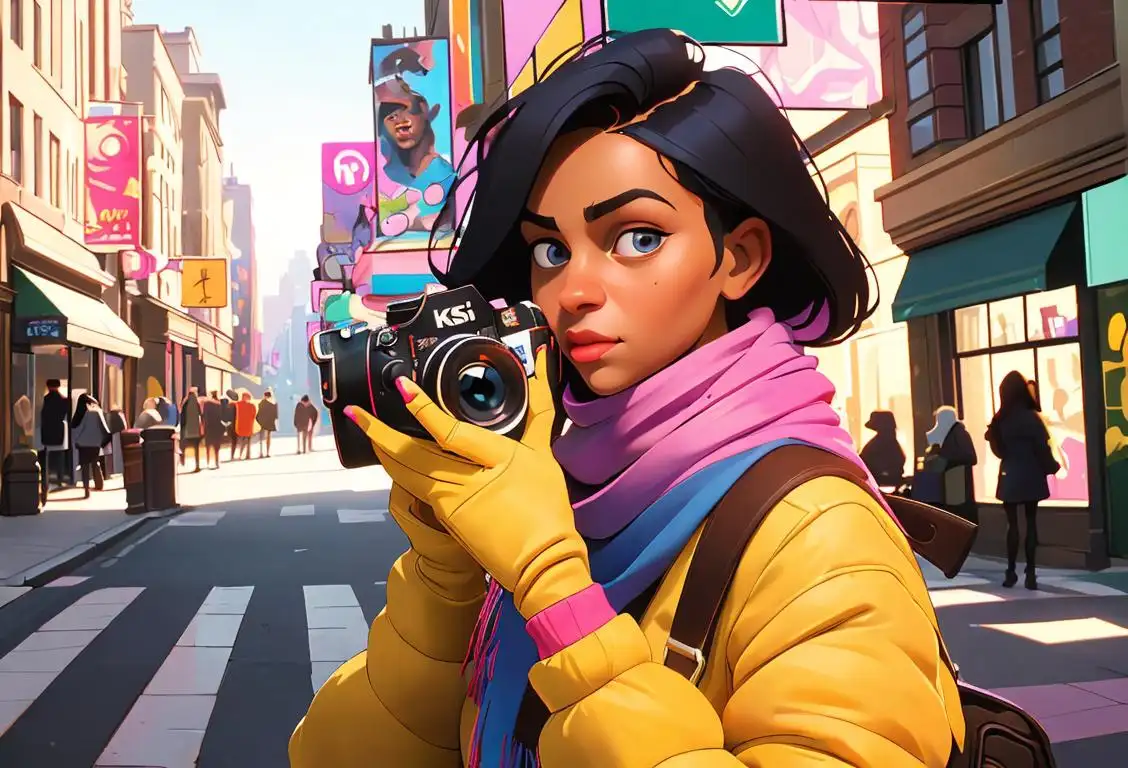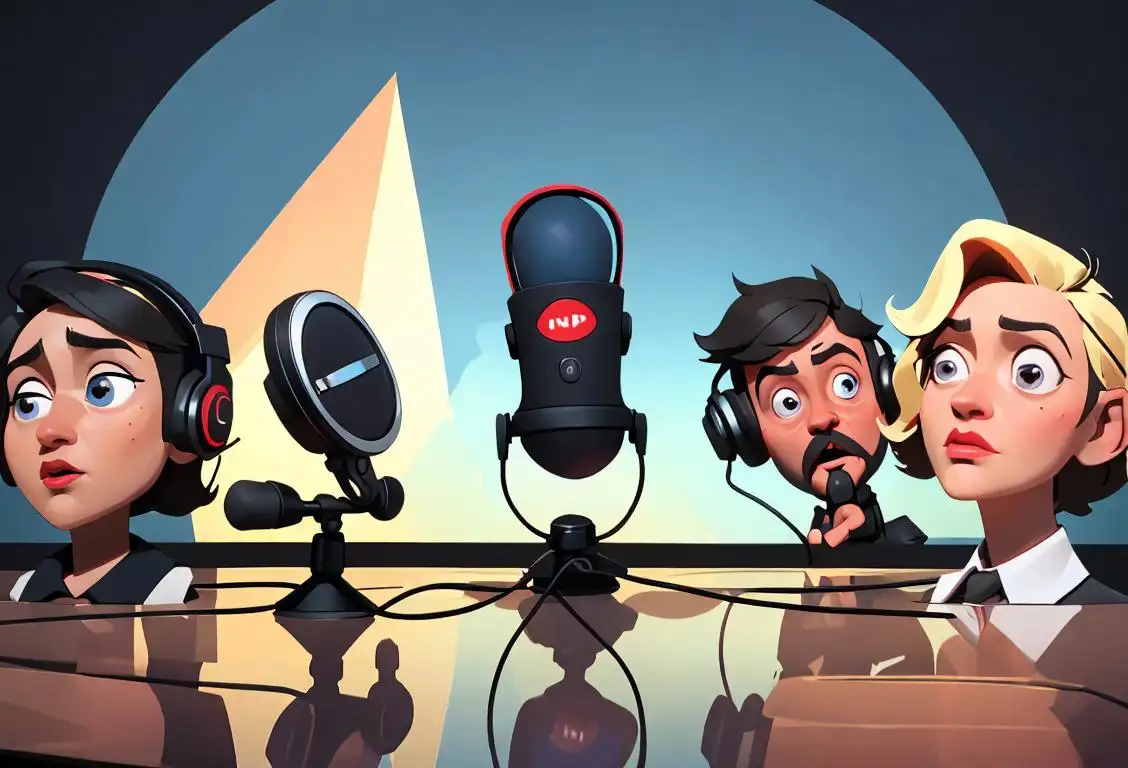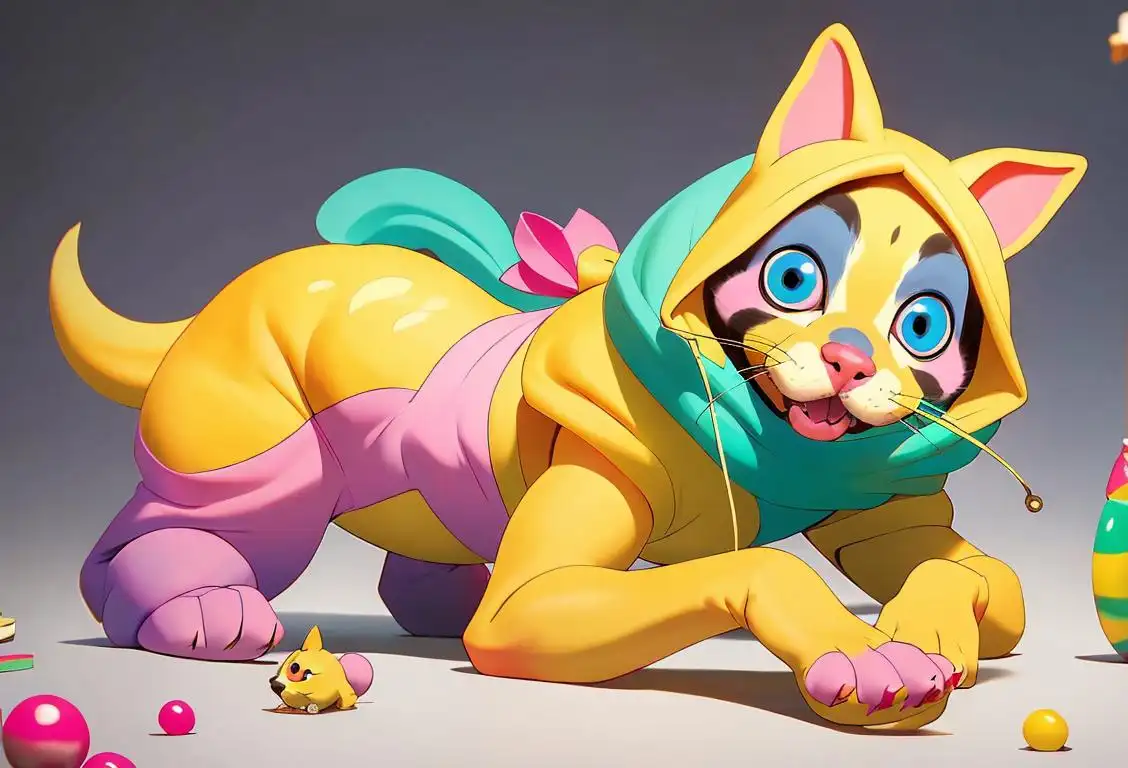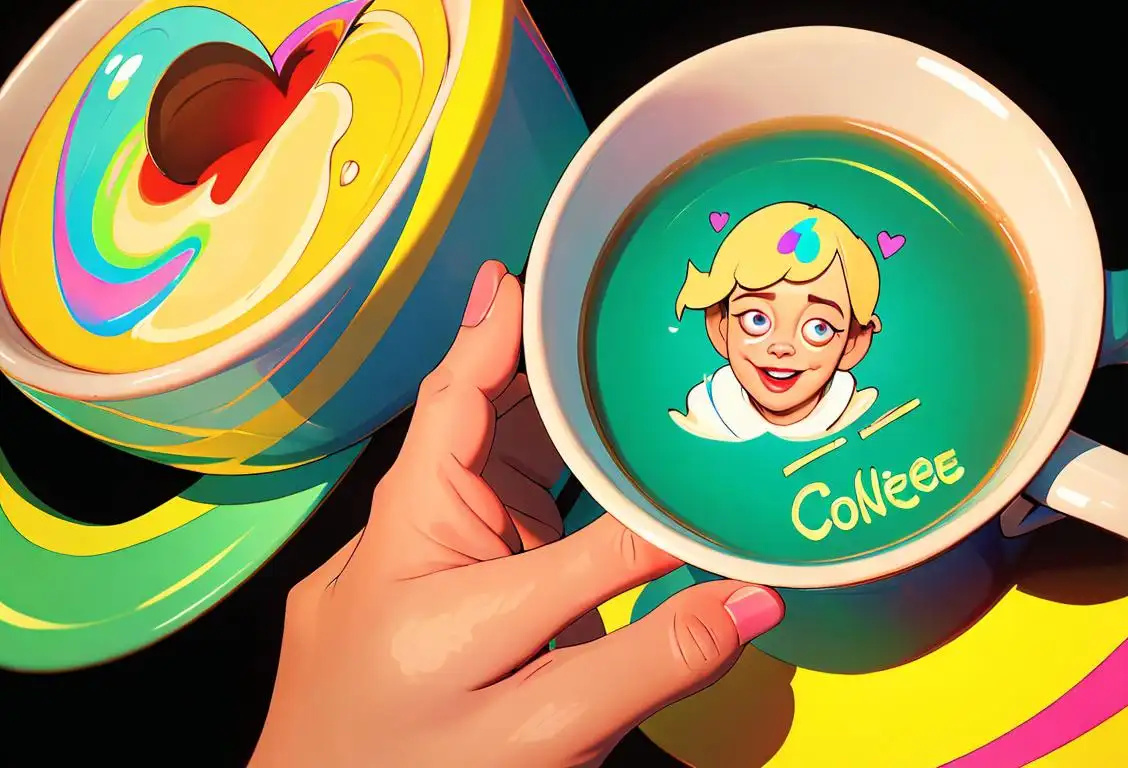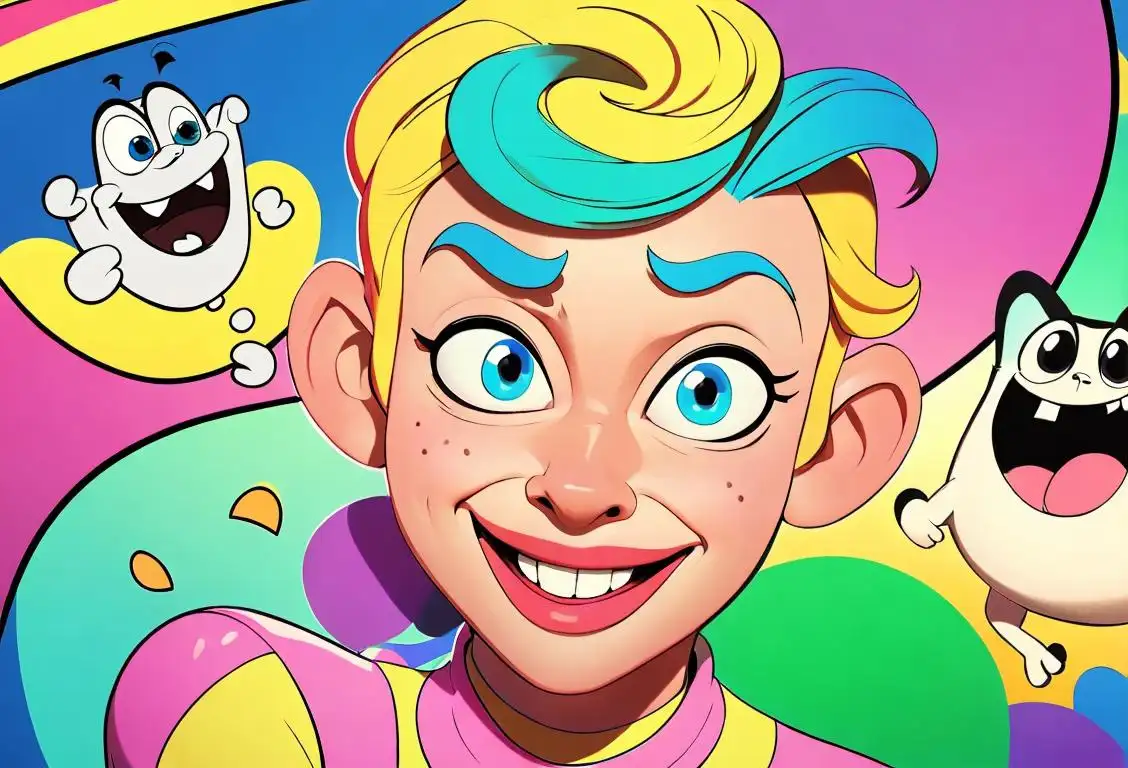National Hashtag Day

Happy National Hashtag Day! Today is a special day dedicated to celebrating the mighty hashtag, the unsung hero of the internet. So grab your keyboards and get ready to pound some keys in honor of this digital symbol that has taken the online world by storm.
When is Hashtag Day?
It's national hashtag day on the 2nd June.
The Rise of the Hashtag
Let's dive into the fascinating history of the hashtag, shall we? Believe it or not, the hashtag was not always the powerful tool we know today. Its humble beginnings can be traced back to the good old days of IRC (Internet Relay Chat) in the 1990s. Back then, a pound symbol (#) was used to create chat groups or channels. It wasn't until 2007, when a guy named Chris Messina suggested using the hashtag to group conversations on Twitter, that the hashtag really took off.
Since then, hashtags have become a ubiquitous part of the internet culture. From trending topics to viral challenges, hashtags have connected people, spread ideas, and started movements. They have even made their way into our everyday conversations, popping up in memes, texts, and even on birthday cards (Happy #Birthday to you!)
A Day to Honor the Mighty Symbol
National Hashtag Day is all about showing our appreciation for this indispensable internet tool. It's a day to celebrate the cleverness behind popular hashtags like #ThrowbackThursday, #TacoTuesday, and #MondayMotivation. So go ahead and unleash your creativity, because today is the perfect day to join the hashtag frenzy.
#DidYouKnow?
Speaking of creativity, did you know that the longest hashtag ever recorded on Twitter was a whopping 135 characters? It may not sound like a lot, but considering that Twitter limits each tweet to 280 characters, that's saying something! The hashtag was #AReallyLongHashtagThatGoesOnForeverAndEver, and it was used to promote a charity event. Talk about commitment!
History behind the term 'Hashtag'
1970
Invention of the hashtag symbol
In 1970, the symbol '#' was added to the standard keyboard layout on a telephone keypad. It was primarily used by telephone companies to denote the number or pound sign. This sign was not popular or widely used at the time.
2007
The birth of hashtags
In the year 2007, the term 'hashtag' was first introduced on Twitter. It was created by Chris Messina, a social technology expert, who suggested using the pound sign (#) to group related Tweets together. Messina's idea was influenced by the use of tags in IRC (Internet Relay Chat) channels, and he proposed the use of hashtags to make it easier for users to find and follow specific topics of interest.
1970
The Invention of the Pound Sign
The term 'hashtag' can trace its roots back to 1970 when it was first introduced as the 'pound sign'. Originally, it was primarily used in telephony as a symbol to indicate numbers and weight. However, its significance would soon extend beyond its practical application.
2007
Introduction to social media
In 2007, the term 'hashtag' gained popularity due to its usage on social media platform Twitter. Chris Messina, a social technology expert, proposed using the '#' symbol to create groups or topics on Twitter. He made the suggestion as a way to organize conversations and make them easily searchable. Little did he know that his idea would revolutionize the way people communicate online.
1988
The Introduction of the 'Hash' Key on Computer Keyboards
In the year 1988, the term 'hash' was attached to the 'pound sign' as the symbol started to appear on computer keyboards. This key allowed users to access command prompts in programming languages. Its rising popularity in the digital world would pave the way for its transformation into a powerful tool of communication.
2009
Formal adoption by Twitter
Two years after the concept was conceived, Twitter officially embraced the use of hashtags as a means of organizing and categorizing content. They introduced automatic hyperlinking of hashtags in tweets, allowing users to click on a hashtag and view a timeline of public tweets containing the same tag. This development marked a significant milestone in the widespread usage and recognition of hashtags as a communication tool.
2009
Adoption by Twitter
In 2009, Twitter officially recognized and adopted the hashtag as a part of its platform. They added hyperlink functionality to hashtags, allowing users to click on them and view other tweets related to the same topic. This move further popularized the use of hashtags, and they quickly became an integral part of the Twitter experience.
2007
The Birth of the Hashtag on Twitter
The term 'hashtag' as we know it today was coined on August 23, 2007, by Chris Messina, a social technology expert. Messina suggested using the pound sign (#) as a way to group related tweets and make them easily discoverable on Twitter. Initially, users were skeptical, but the idea quickly gained traction and revolutionized online conversations.
2010
Hashtags go mainstream
In 2010, hashtags started to gain traction outside of the Twitter platform. People began using hashtags on various social media platforms like Facebook, Instagram, Tumblr, and Google+. This expansion in usage broadened the reach and influence of hashtags, making them an integral part of online conversations and campaigns across multiple platforms. Hashtags quickly became a common feature to categorize content and drive engagement.
2010
Spread to other social media platforms
By 2010, other social media platforms like Instagram and Facebook started recognizing the power of hashtags and incorporated them into their own platforms. Hashtags became an effective way for users to browse and discover content related to specific topics. It helped users connect with communities and share common interests.
2009
Twitter Officially Embracing the Hashtag
In 2009, Twitter recognized the power and potential of the hashtag and officially implemented hyperlinks on the platform. This upgrade allowed users to click on a hashtag to see all other public tweets using the same tag. The hashtag became an essential feature not only on Twitter but across various social media platforms.
2013
Hashtags in popular culture
By 2013, hashtags had become firmly entrenched in popular culture. Hashtags were being used on television shows, in advertising campaigns, and at live events. TV shows encouraged viewers to participate in discussions using show-specific hashtags, making them a crucial element of audience engagement. Additionally, hashtags were used in marketing campaigns to promote products and encourage user-generated content. This widespread integration of hashtags into popular culture solidified their place as a significant communication tool.
2010
Wide Adoption and Cultural Impact
By 2010, the hashtag had become an integral part of online culture. It was widely adopted beyond Twitter, with platforms like Instagram, Facebook, and even television incorporating hashtags to engage viewers and foster online communities. The ease of hashtag use made it a powerful tool for social activism, viral campaigns, and trending topics.
2017
Hashtags as advocacy and activism
As hashtags continued to evolve, they became powerful tools for advocacy and activism. The hashtag #BlackLivesMatter, for example, gained global attention as it spread awareness about racial injustice and police brutality. Hashtags provided a platform for marginalized voices, enabling individuals to raise awareness, organize movements, and promote social change. This shift in the use of hashtags showcased their potential to go beyond mere viral trends and contribute to meaningful conversations and movements.
2014
Record-breaking hashtag campaigns
In 2014, hashtags gained mainstream attention through notable campaigns. The '#IceBucketChallenge' went viral on various social media platforms, raising awareness and funds for amyotrophic lateral sclerosis (ALS). It showcased the ability of hashtags to unify people around a cause and create social impact. This campaign and others helped solidify the hashtag's role as a powerful force for online activism and awareness campaigns.
2014
First Hashtag in the Oxford English Dictionary
In recognition of its overwhelming popularity and cultural impact, the term 'hashtag' was officially added to the Oxford English Dictionary in June 2014. This acknowledgment solidified the hashtag's significance as a linguistic and digital phenomenon, marking its journey from telephony symbol to a globally recognized term.
Present
Ubiquitous use and cultural influence
Today, hashtags have become an integral part of online culture. They are used in various contexts, including social activism, marketing campaigns, trending topics, and expressing personal opinions. Hashtags have even made their way into daily conversations, where people use them as a way to emphasize or categorize their statements. The rise of hashtags has transformed the way people communicate, allowing individuals from all walks of life to participate in larger discussions and connect with like-minded individuals across the globe.
Did you know?
Did you know that the longest hashtag ever recorded on Twitter was a whopping 135 characters?Tagged
fun internet social-media old-schoolFirst identified
11th August 2015Most mentioned on
2nd June 2018Total mentions
260Other days
Hashtag Day
Bad Poetry Day
Tv Day
Ksi Day
Podcast Day
Send Me Pictures Of Ur Pets Wearing Costumes Day
Covfefe Day
Cartoonist Day
Friend Day
Where The Hell Am I Day


